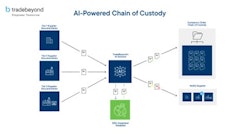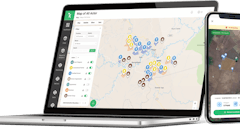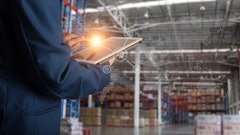Sustainability is one of the greatest needs and opportunities for businesses today. The Sustainable Food Trade Association (SFTA), a North American non-profit trade association, is serving this need by working with organic food companies in implementing innovative sustainable business practices across the supply chain, from farm to retail. Association member companies use a standardized reporting framework and methodology as well as explore areas of collaboration to further demonstrate the social and environmental benefits of organic food production and processing.
The rise in awareness of sustainability is impressive and is especially important for the organic food industry because of the direct relationships with the planet and people. SFTA members use annual sustainability reports as a tool to better understand their own operations, and to collectively take strong and effective steps to minimize the impacts of their operations.
Since 2008, SFTA members have written and shared 61 annual sustainability reports in an effort to strategically imbed sustainability within a community of best practice. In 2012, twenty member companies submitted reports to SFTA (based on 2011 data). The reports are full of inspirational achievements and demonstrate marked improvements over the previous reporting year. Last year also marked the first time that the association aggregated data from the 20 reporting members to better understand the collective achievements and sustainability trends.
Sustainability initiatives are no longer luxuries or optional, but rather are responsibilities and an integral part of the bottom line. The following findings are a step in the right direction and an opportunity to highlight the collaboration and achievements of many organic food companies.
- Organic is a trend worth investing in. A full 100 percent of the reports included a dedication to organic agriculture, by either only selling/producing organic products or stating a goal to increase organic purchases or sales in the coming year.
- Efficiency is driving reduced energy use. All of the reports stated a formal commitment to energy efficiency through policies and practices. In addition, 37 percent of members reported they have invested in onsite renewable energy generation.
- Waste diversion rates from landfill increased. The average amount of waste diversion from landfills was 76 percent! This was an increase of 18 percent more being diverted (58 percent diversion) over the previous year as well as a 34 percent increase in members reporting taking action such as auditing and managing their waste streams.
- Climate change abatement initiatives are front and center. Eighty-five percent of members reported investing in tracking and integrating carbon management into their business operations. This is a 25 percent increase over reports submitted in 2011.
- Water use reduction is a priority for organic food companies. Eighty percent of the members reporting are tracking and focusing on reduction efforts of water use in their operations. This is a 20 percent increase over the previous year.
- Community investment is universal. SFTA members reported donating $4,355,140 in cash and in-kind donations. This is a 26 percent increase over the previous year, while 100 percent of reporting members participated in charitable contributions of volunteering, cash or product donations.
Nate Schlachter is the executive director for the Sustainable Food Trade Association, online at www.sustainablefoodtrade.org.



























